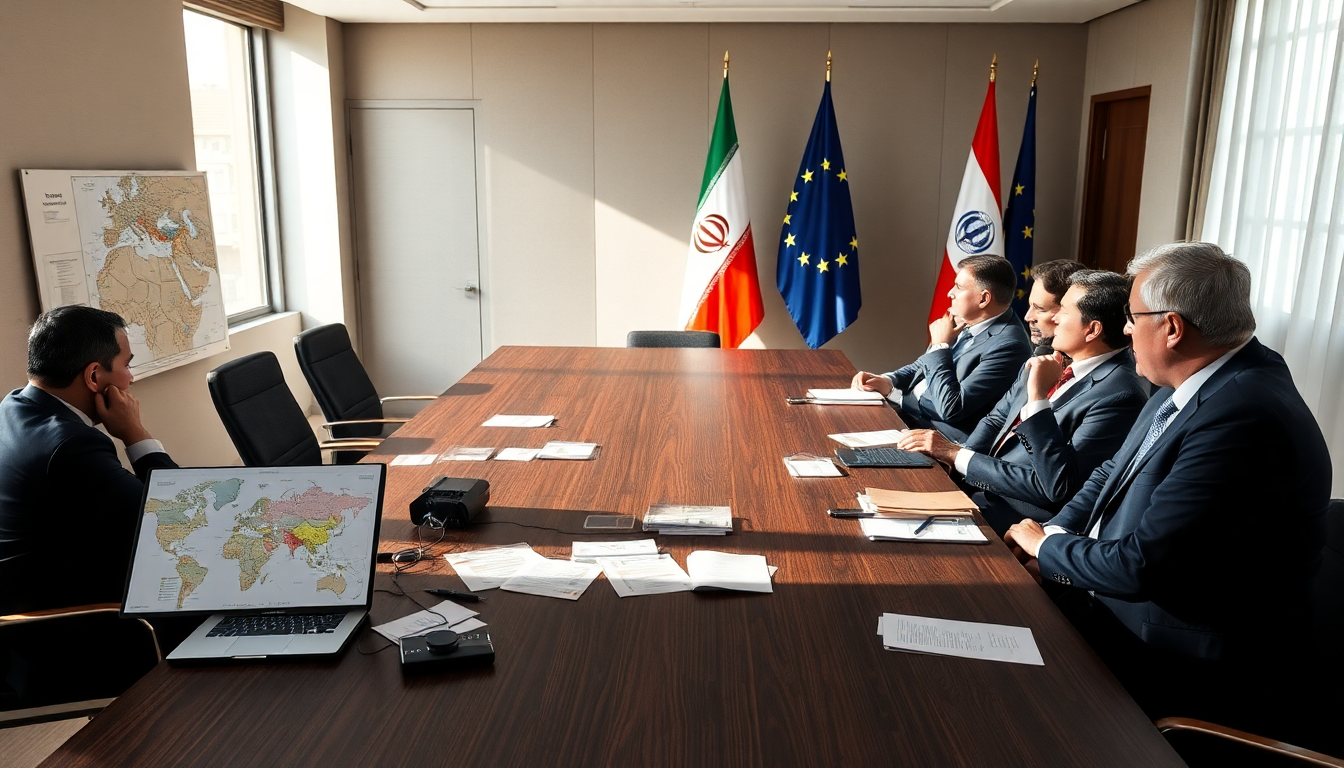Table of Contents
In the constantly changing world of international relations, recent meetings between Iranian officials and European diplomats are more than just formalities; they represent a pivotal moment in the ongoing conversation about Iran’s nuclear ambitions. But what exactly does this mean for the future? These discussions not only reveal the complexities of geopolitical negotiations but also hint at the possibility of renewed sanctions that could drastically alter the region’s stability. With military conflicts and diplomatic gestures occurring simultaneously, it’s crucial to unpack the details of these discussions.
Context of Recent Negotiations
The recent face-to-face meeting in Istanbul between European diplomats and Iranian representatives is a noteworthy development in the dialogue surrounding Iran’s nuclear program. Given the backdrop of military actions, such as airstrikes by Israel and the U.S. on Iranian nuclear sites, the need for diplomatic engagement has never been more urgent. This four-hour discussion, which has been described as “serious, frank, and detailed,” could be the foundation for future negotiations aimed at curbing Iran’s nuclear activities. Isn’t it fascinating how diplomacy can sometimes feel like a high-stakes game of chess?
The stakes couldn’t be higher. The E3 nations—Britain, France, and Germany—are weighing the reimposition of sanctions that were initially lifted under the 2015 nuclear deal. These sanctions could be reinstated through a “snapback” mechanism, serving as a powerful leverage point for the Europeans if Iran doesn’t stick to the agreed conditions. As European leaders have indicated a timeline for reinstating these sanctions, one has to wonder: how will Iran respond to this pressure?
The Implications of Sanctions and Diplomatic Engagement
The potential reintroduction of sanctions could have far-reaching consequences for both Iran and the international community. A European diplomat recently emphasized that the snapback mechanism is still on the table—pending Iran’s compliance with the International Atomic Energy Agency (IAEA) and its commitment to addressing concerns about its enriched uranium stockpile. This clear stipulation indicates that while there’s a willingness to engage in dialogue, there’s also a strong insistence on accountability and adherence to international agreements. Isn’t it interesting how trust plays such a crucial role in these discussions?
On the flip side, Iran’s government has expressed deep mistrust towards the U.S., complicating the situation even further. Iran is expecting the U.S. to rejoin the 2015 nuclear deal, which was unilaterally abandoned by President Trump in 2018. This skepticism reflects a broader narrative of distrust that runs through the region’s geopolitical landscape, making negotiations all the more complicated. Can a lack of trust truly be repaired through dialogue?
Future Outlook of Diplomatic Relations
As conversations continue, the potential for a breakthrough hangs in the balance. While Iranian leaders are calling for cooperation and credible engagement with the West, military confrontations are creating an atmosphere of heightened tension. The IAEA’s recent report indicating a significant increase in Iran’s enriched uranium stockpile serves as a stark reminder of the delicate balance between diplomacy and military action. What will it take for both sides to find common ground?
Looking ahead, the outcomes of these negotiations could significantly shape regional stability and influence global perceptions of nuclear proliferation. The interplay between diplomatic efforts and military readiness will be crucial in determining the future of Iran’s nuclear program and its broader implications for international relations. As we watch these developments unfold, it’s clear that the world will be keeping a close eye on how this intricate dance of diplomacy plays out.


